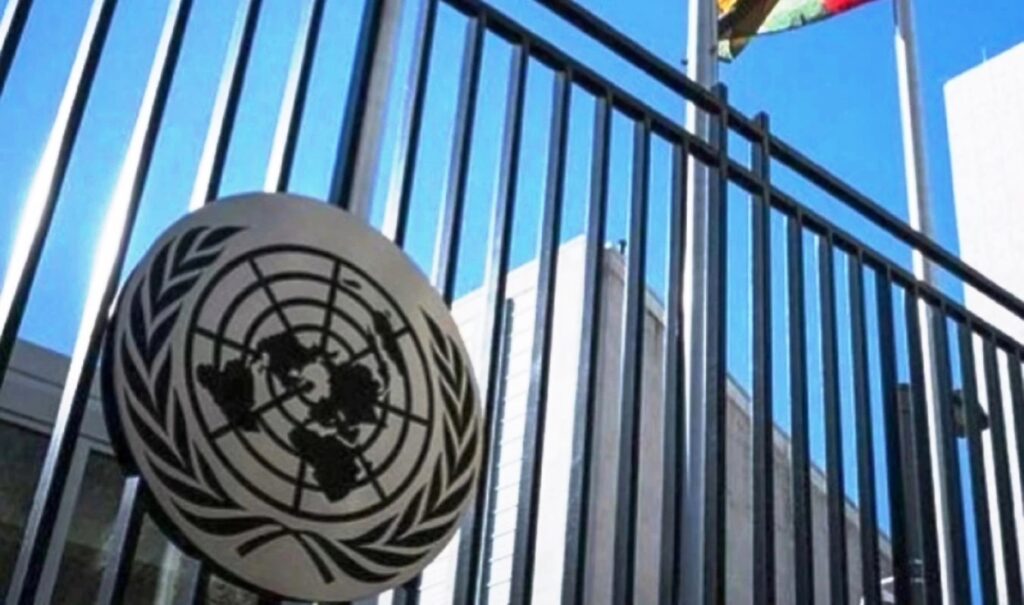Turkey finds itself at the center of international criticism following the publication of the UN report on human rights. Over 120 countries demand accountability for minority and religious rights, freedom of expression, and the state of justice. Greece and Cyprus apply pressure with specific proposals, which Ankara completely rejects, creating a new diplomatic field of tension.
Specifically, it includes Turkey’s national presentation, with reference to reforms for judicial independence, women’s rights, children’s rights, refugee protection, freedom of expression and the rule of law, Turkey’s responses to questions from UN member states, as well as recommendations from the previous evaluation cycle.
The report also includes a detailed list of recommendations from more than 120 countries, covering issues such as judicial reform, gender-based violence, education, freedom of expression, combating discrimination and minority rights.
The six recommendations to Turkey
In this specific document, Greece submitted six specific recommendations to Ankara, calling on it to:
– “Comply with the decisions of the European Court of Human Rights regarding inheritance and property rights, including those of descendants of members of the Greek minority who are not Turkish nationals”.
– “Comply with the decisions of the European Court of Human Rights for human rights violations in the areas of Cyprus under Turkish occupation”.
– “Guarantee a safe environment for media, civil society, political parties without fear of retaliation”.
– “Respect the cultural rights of the Greek Orthodox minority, including by maintaining world heritage monuments such as Hagia Sophia and the Chora Monastery as intercultural spaces”.
– “Guarantee religious freedom, including by recognizing the legal status of the Ecumenical Patriarchate, reopening the Halki Theological School and providing the possibility for non-Muslim communities to elect their leaders and manage their institutions”.
– “Address discrimination and violence against women and LGBTI persons and ensure the protection of minorities”.
What Cyprus requested
Similarly, the Republic of Cyprus asked Turkey to:
– “Consider accession to the Rome Statute of the International Criminal Court”.
– “Effectively investigate the fate of the missing in Cyprus and ensure unimpeded access to the Committee on Missing Persons”.
– “Fully respect the rights of all Cypriots, including those enclaved, and allow unlimited access to Christian religious monuments”.
– “Reverse the decision to withdraw from the Istanbul Convention”.
– “Fully implement the decisions of the European Court of Human Rights for the occupied territories and restore the right of return and property of the displaced”.
Rejection of recommendations by Turkey
Turkey categorically rejected all recommendations submitted by the Republic of Cyprus, stating that it “does not recognize it nor accept its claims to represent the entire island”.
It also rejected all claims related to the Cyprus issue and minority issues in Turkey.
Additionally, it rejected Greece’s recommendation, arguing that “Turkey’s presence in Cyprus stems from the international treaties of 1960 and within the framework of its obligations as a guarantor power”.
Regarding issues of missing persons, property elements, religious freedom and cultural heritage, Turkey stated that they “fall exclusively within the competence of the Turkish Cypriot authorities, who take all necessary measures”.
Many countries such as Norway, France, Canada, Portugal, Denmark, India, Germany and Japan, called on Turkey to guarantee the independence of the judiciary, to reform the Council of Judges and Prosecutors and to ensure the separation of powers.
Numerous states asked Turkey to amend anti-terrorism legislation, protect journalists and human rights defenders and ensure the right to peaceful assembly.
Germany requested among other things the strengthening of the independence and impartiality of the judicial system, as well as the revision and compliance of its anti-terrorism legislation on defamation and anti-disinformation legislation, in order to align with the International Covenant on Civil and Political Rights.
It is also recommended by Ireland and Uruguay to include sexual orientation and gender identity in article 122 of the Penal Code and legislative protection for LGBTI persons.
Repeated recommendations were also given among others by Eritrea and Lebanon for strengthening refugee integration and ensuring access to health, education and justice.
What the report says about justice
Turkey -according to the report- presented the “Third Judicial Reform Strategy” (2019-2023) and the launch of the “Fourth Strategy” (2025-2029), which aims to strengthen judicial independence and citizens’ access to legal remedies.
Cooperation with the EU and the Council of Europe to improve the criminal system and prevent violations was also presented. At the same time, decisions of international and national courts are being examined in view of the new Human Rights Action Plan.
Turkey stated that it implements 90% of the decisions of the European Court of Human Rights, exceeding the European average.
What the report says about gender-based violence
Turkey reiterated its commitment to violence against women, but defended its withdrawal from the Istanbul Convention, stating that it has a national legal framework to address gender-based violence.
The operation of the “KADES” application in 11 languages, the operation of a 24/7 helpline and the implementation of educational programs for perpetrators throughout the country were highlighted.
Dozens of countries such as France, Spain, Belgium, Mexico, Sweden asked Turkey to:
-Criminalize femicide and sexual violence
-Return to the Istanbul Convention
-Strengthen the shelter network
-Abolish mitigating circumstances in “honor crimes”.




